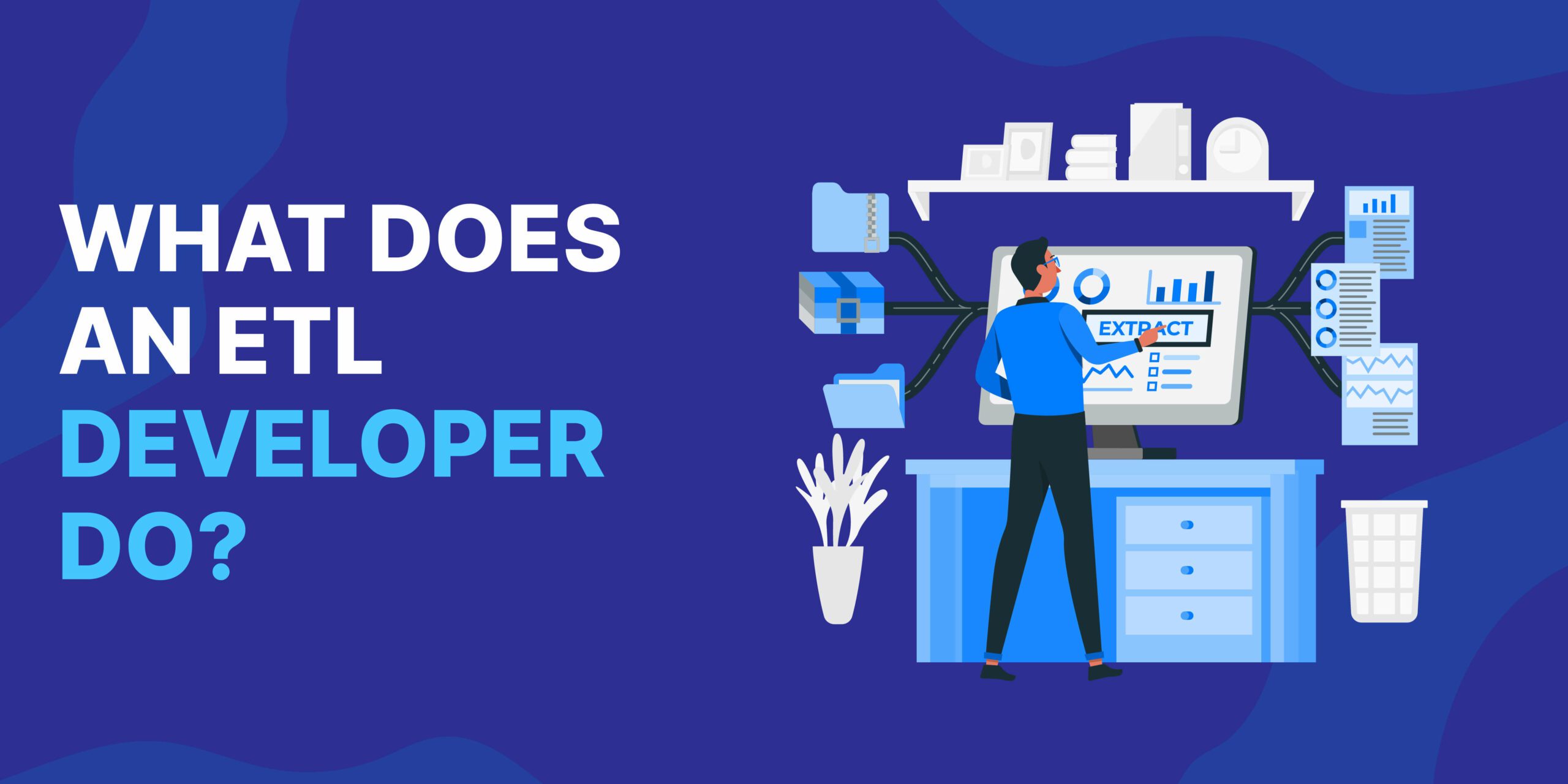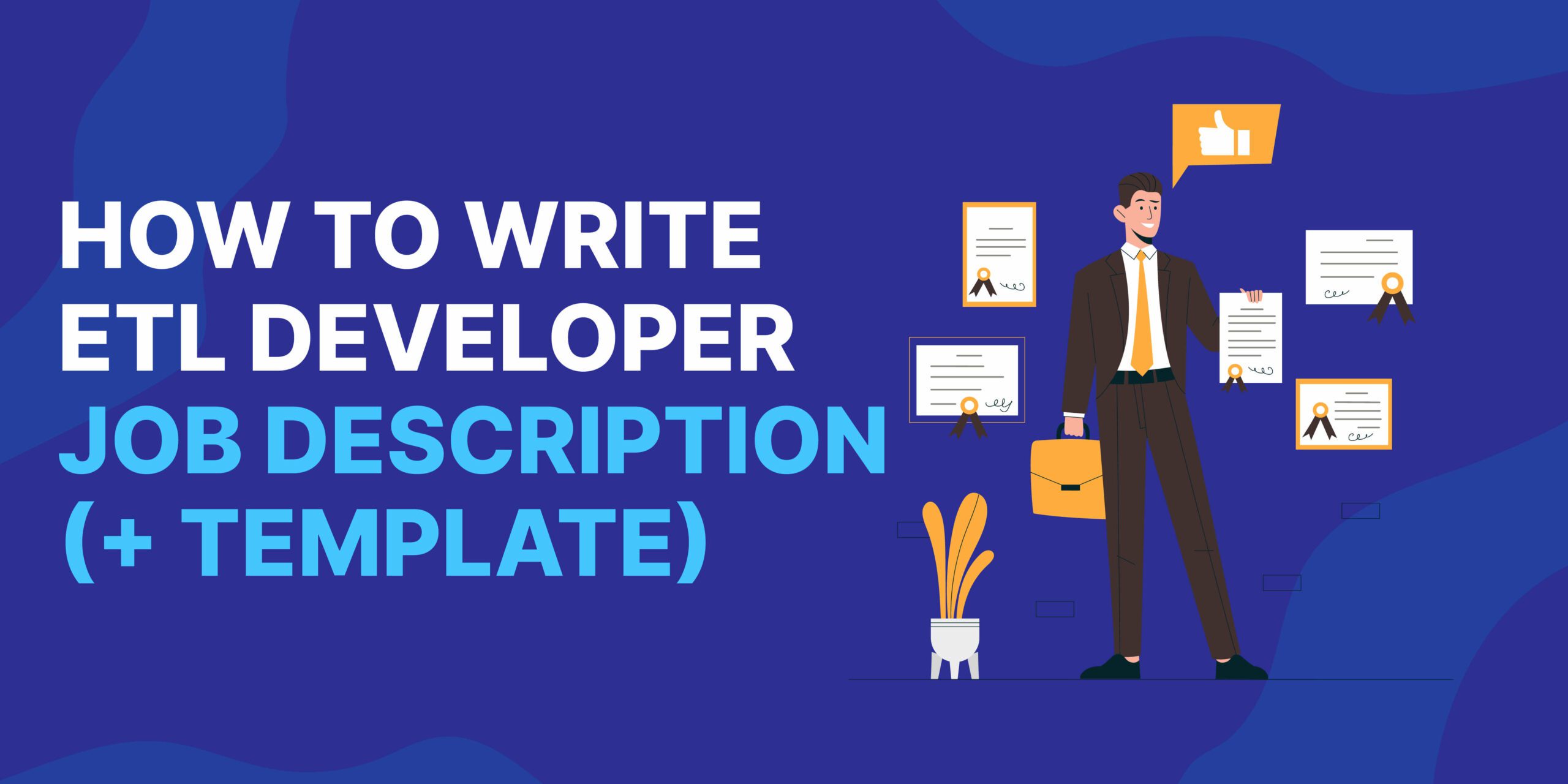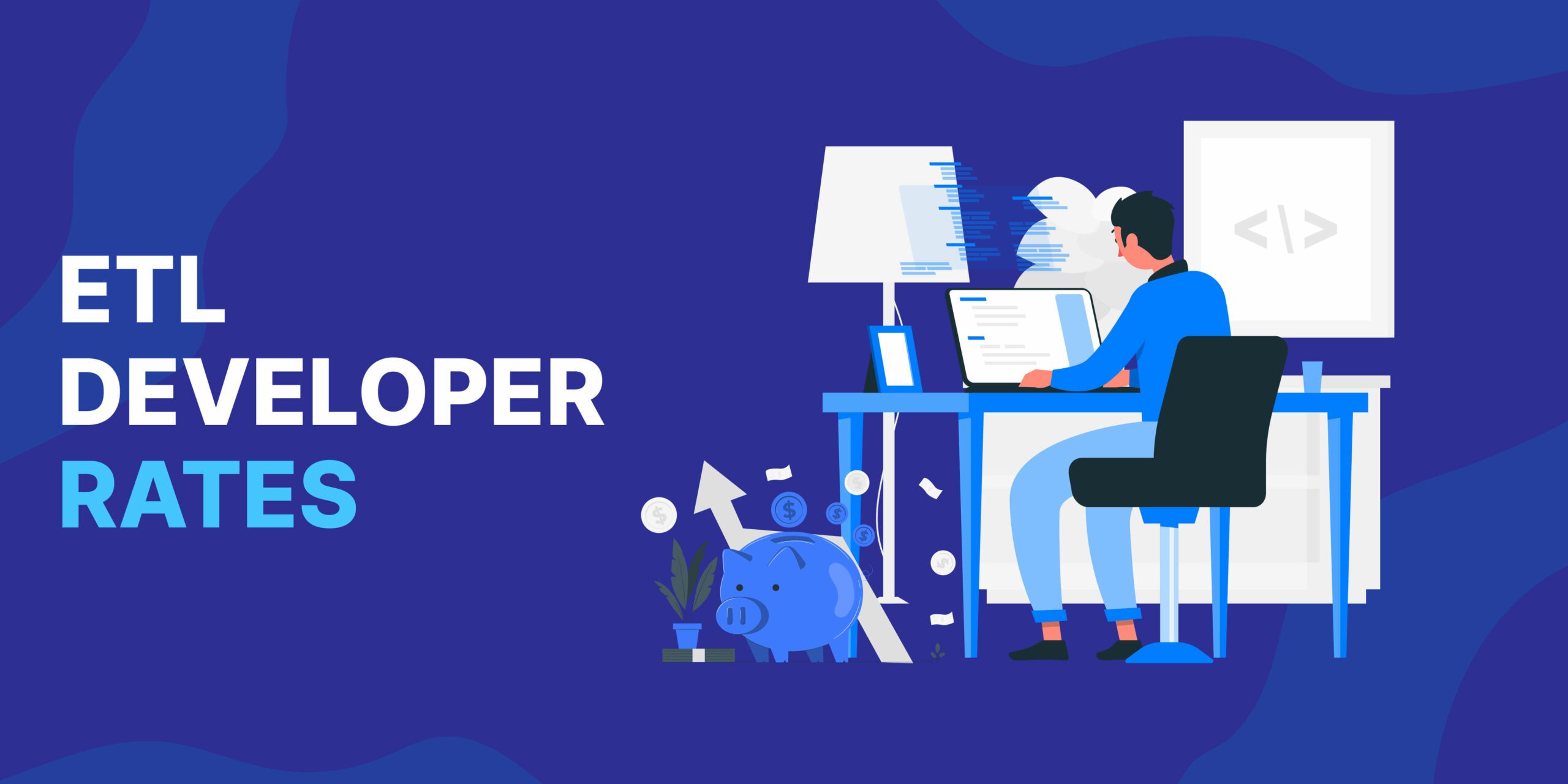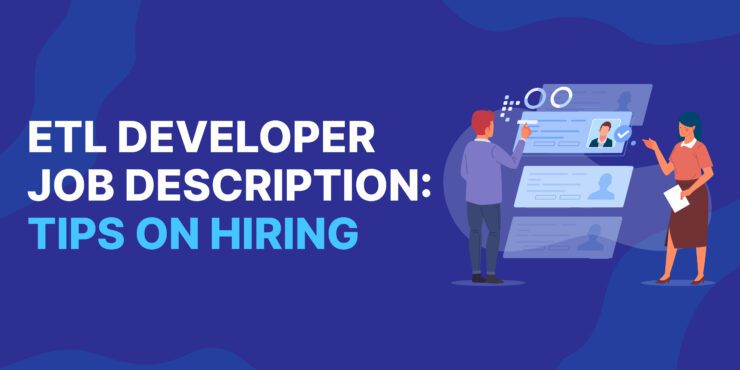Is your company’s data all over the place? Do you need to set up an organized process to keep all of your data in one place, easy to reference whenever you need it?
You need an ETL developer.
Here’s how to write a killer job description that will attract the best ETL developer for the job.
Why We Like Toptal
- Top Talent: Get access to elite, pre-screened candidates (only accepts the top 3%)
- Flexibility: Ideal for long-term or shorter-term specialty projects
- 14-Day Risk-Free Trial: Only get billed if you're satisfied
We offer this website completely free to our visitors. To help pay the bills, we’ll often (but not always) set up affiliate relationships with the top providers after selecting our favorites. However, we do our best not to let this impact our choices. There are plenty of high-paying companies we’ve turned down because we didn’t like their product.
An added benefit of our relationships is that we always try to negotiate exclusive discounts for our visitors.
What Does an ETL Developer Do?


First off, what is an ETL developer and what do they do?
ETL stands for Extract, Transform, Load. This position falls somewhere between data analysis and data engineering. It requires the developer to have a working knowledge of both, as well as creative problem-solving skills.
An ETL developer is a software engineer who creates a process to extract, convert, and load data into a warehouse that they build and maintain.
A few responsibilities of an ETL developer include:
- Understand the data needs and unique challenges of the client to create a developmental strategy for a solution.
- Ensure data accuracy.
- Create a solution to make data more organized and accessible, allowing for easier data consumption and understanding from non-technical people.
- Lead data model design and implementation and the construction and implementation of operational data storage.
- Develop a process for how to easily move, transform, and store data moving forward using data engineering and analytics tools.
- Communicate with other team members to understand their challenges and to ensure the creation of solutions that work for them.
When to Hire an ETL Developer


Your business should hire an ETL developer when you need sophisticated data solutions that you’re unable to create and maintain on your own.
A few examples of when it may be time to hire an ETL developer include:
- Building and maintaining a data warehouse
- Migrating data from one system to another
- Integrating new data sources into existing ones
- Data system upgrades or replacements
- Optimizing data processing performance
- Ensuring data meets regulatory requirements
- Data cleaning or organization
- Need for real-time data processing
What to Look for in an ETL Developer


Alright, so you’ve determined you need an ETL developer.
What do you need to look for in one?
Your ETL developer should have the following skills and qualifications:
ETL Developer Skills
Make sure your ETL developer has these skills:
- Knowledge of ETL Tools and Software (including Talend, Informatica, and Pentaho)– These tools provide a graphical interface for the developer, usually drag and drop. The developer can see the entire workflow from source to target, streamlining the development process and making things run more smoothly.
- SQL Competence (query performance tuning, index management, etc.)-Since SQL is the primary language necessary for every step of ETL, an ETL developer must have a solid grasp of this popular database language.
- Proficiency in Scripting Languages (Python, Perl, Bash, etc) can come in handy when other database languages fail
- Understanding of Data Modeling Concepts and Parameterization
- Problem-solving Skills- Including knowledge of debugging and how to troubleshoot that will undoubtedly arise during the process.
Qualifications for an ETL Developer
Formal qualifications and education requirements for an ETL developer include:
- Years of Experience– Companies may require an advanced ETL developer with multiple years of experience in the ETL development or similar software engineering field.
- Data Analytics Background– A good way for software engineers to get into ETL is to first gain experience in data analytics.
- Bachelor’s Degree– Though not always required, many businesses prefer candidates who have a Bachelor’s degree in computer science or IT-related field of study.
- Additional Certifications– Earning a certificate in things like business data, ETL language, and other coding languages shows a commitment to understanding ETL processes.
ETL Developer Characteristics
Aside from the hard skills, there are a few soft skills and personality traits that make for a great ETL developer.
A few of them include:
- Communication Skills– An ETL developer must discuss goals and data with team members which often include people with little to no tech experience. Clear communication skills are a must.
- Creativity– Creating the best data solutions often requires some out-of-the-box thinking.
- Analytical Mindset– Since an ETL developer’s primary duties are to extract, interpret, and store data, an analytical mindset is necessary.
- Detail-Oriented– Data storage and transformation can get very specific, so an ETL developer needs to be able to make sure they don’t miss anything.
- Project Management Skills– The ETL developer will often be leading teams and working on multiple things at once, so they must be able to lead and manage multiple moving parts.
How to Write an ETL Developer Job Description + Example/Template


Writing a stellar ETL developer description is the key to attracting the top ETL development talent.
In order to do this, there are a few things you need to cover.
Here’s what you should include in your ETL job description.
Check out our list of interview questions for an etl developer.
Company Introduction
Introduce your company with a brief overview of its identity and values. Provide a link to your company's website and any relevant resources, summarizing your company's culture and the advantages of being part of your team in 2-3 sentences.
Job Description
Outline the ETL development role you are looking for and its primary responsibilities. This portion is an overview of what you need, so mention your main expectations.
Template: [Company name], a leader in innovative data solutions, is looking for an ETL Developer to join our team. In this role, you'll design, develop, and maintain ETL processes for data warehousing and integration, ensuring data accuracy and efficiency. You'll collaborate with cross-functional teams, optimize data workflows, and troubleshoot data issues. Ideal candidates should have a background in computer science, strong SQL skills, and experience with ETL tools. We offer a dynamic work environment, competitive salary, and opportunities for growth. Join us in transforming data into actionable insights! Apply Now
Responsibilities
Outline the primary responsibilities for the role formatted in a bulleted list.
- Develop ETL warehousing processes
- Extract, transform, and load data
- Collaborate with analysts, stakeholders
- Optimize data pipeline performance
- Troubleshoot data quality issues
- Maintain ETL process documentation
- Keep updated with the latest ETL technologies
- Ensure data governance compliance
- Add any other core responsibilities for the job
Skills
- Proficiency in ETL tools
- Strong SQL and database knowledge
- Data warehousing expertise
- Problem-solving and analytical skills
- Familiarity with data modeling
- Excellent communication and teamwork abilities
- Knowledge of data governance
- Adaptability to new technologies
- Specify any other skills relevant to the job, including knowledge of tools or specific languages
Qualifications
- Bachelor's in Computer Science/related
- Experience in ETL development
- Proficient in SQL, database systems
- Familiarity with ETL software tools
- Experience with data integration projects
- Add any other qualifications necessary for the role
ETL Developer Rates


Here's a general idea of the ETL Developer charging structures:
- Hourly Rate: ETL Developers may charge an hourly rate, typically between $30 to $80 per hour.
- Monthly/Annual Salary: Some ETL developers may charge monthly, which can cost between $100 to upwards of $10,000 per month.
- Project-Based Fee: An ETL developer might charge a flat fee based on the project's complexity, duration, and demands.
The Best Place to Hire an ETL Developer


If you’re in need of a talented ETL developer, Toptal is the best place to go. With a rigorous screening process, Toptal only accepts the top 3% of ETL development applicants. They thoroughly vet all accepted freelancers, ensuring you get access to ETL developers with exceptional expertise.
Leverage Toptal to find an ETL developer with the best background for your needs.
Why We Like Toptal
- Top Talent: Get access to elite, pre-screened candidates (only accepts the top 3%)
- Flexibility: Ideal for long-term or shorter-term specialty projects
- 14-Day Risk-Free Trial: Only get billed if you're satisfied
Frequently Asked Questions
What does an ETL developer do?
An ETL developer extracts, transforms, and loads data from multiple sources in a company’s structure. They organize it in a data warehouse so that non-technical team members can understand.
What are things to include in an ETL developer job description?
Things to include in an ETL developer job description include responsibilities like developing ETL warehousing processes, collaborating with analysts and stakeholders, and optimizing data pipeline performance. You should also include skills like proficiency in ETL tools and SQL or communication skills and qualifications like a degree in computer science or experience with data integration projects.
Where can I find an ETL developer?
You can find an ETL developer on many freelance sites, like our favorite pick, Toptal.
How much does it cost to hire an ETL developer?
It costs between $30 and $80 per hour to hire an ETL developer.
Is an ETL Developer worth it?
If you have a data migration or organization project, it’s worth it to hire an ETL developer, as they possess knowledge and skills that the average business owner likely doesn’t have.





















